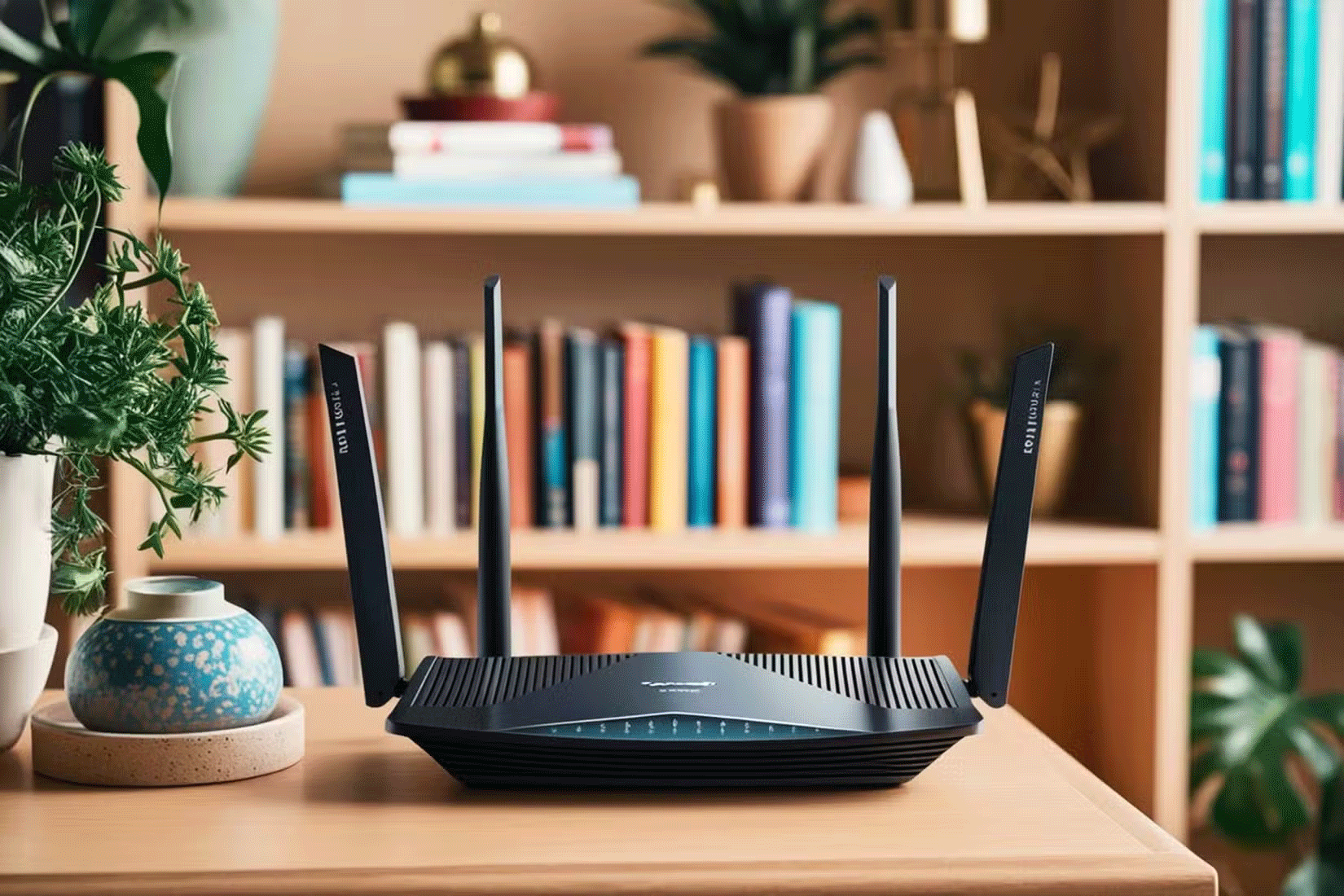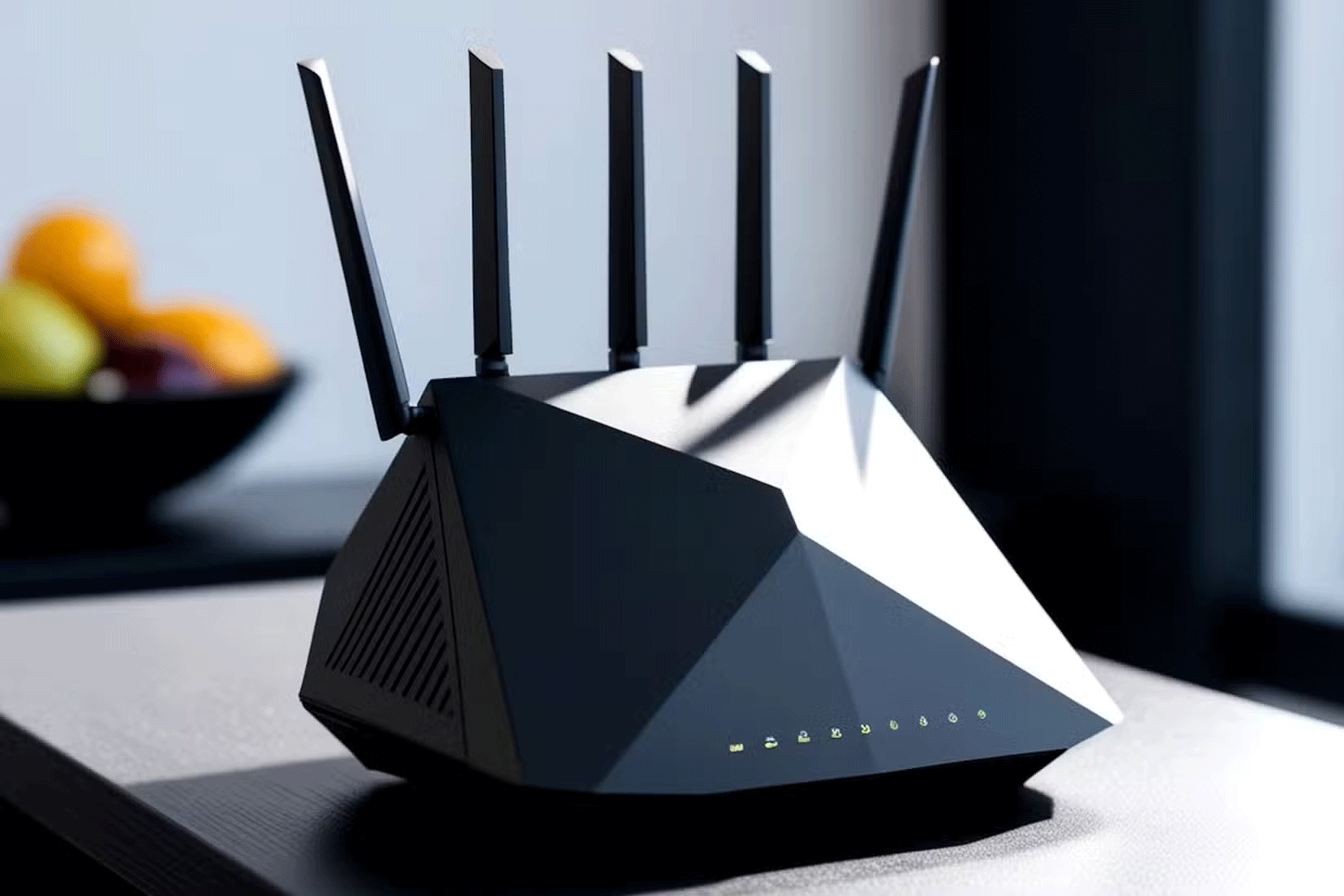How does a tri-band router improve Wi-Fi speed?
Upgrading to a high-speed Internet connection won't automatically speed up your network. You'll also need a router that can take advantage of new Wi-Fi technology, has more Wi-Fi bands, and supports modern features. Having these specific routers will help you achieve speeds you've never seen before.
What is a tri-band router?

If you've purchased a new router in the last three years, chances are you have a dual-band router—one that hosts a 2.4GHz network and one that hosts a 5GHz network. On most dual-band routers, the available bandwidth is evenly distributed across all connected devices, since each frequency only has one band. This reduces network speeds to the slowest device on the network, meaning faster devices aren't using their full potential.
Tri-band routers add an additional 5GHz or 6GHz network, providing more speed, bandwidth, and channels for faster, more stable Wi-Fi connections. Most routers will also ensure that faster devices have a less congested band than slower devices, ensuring each device can reach its maximum network speed as close to full as possible.
Wi-Fi 5 and Wi-Fi 6 tri-band routers typically add a second 5GHz band to their existing 2.4GHz and 5GHz bands, giving faster devices a second channel to connect to. Wi-Fi 6E and Wi-Fi 7 routers typically add a 6GHz band for slightly faster and more stable download and upload speeds, while also providing all the stability and bandwidth benefits of having a dedicated band.
More bandwidth means less network congestion

As you might expect, the biggest benefit of upgrading to a tri-band router is the additional 5GHz or 6GHz band. The additional band provides more Wi-Fi channels, which means less network congestion for compatible devices. In most cases, Wi-Fi devices will connect to the appropriate band when set to dynamic assignment. However, you can also set up each Wi-Fi band with a unique SSID (Wi-Fi network name) and assign it to each device manually.
This has a few advantages. First, you avoid network congestion. It's no secret that as the number of devices connected to a band increases, the speed and stability of the connection will decrease significantly. So if you have dozens of devices like laptops, smartphones, smart bulbs, and other devices connected to the same band (or network), you won't get the best Wi-Fi experience.
Conversely, more bands means devices can be allocated to separate networks, giving them the bandwidth they need. Since there are now fewer devices on each network, you'll also get better network stability and less interference from household appliances, since the faster 5GHz and 6GHz bands are less susceptible to outside interference.
If you're running a mesh network, a tri-band router will dedicate one band to communication between the mesh router and its satellites—called backhaul. A dual-band router will have to use one of its available bands for backhaul connections, limiting the bandwidth available for actual Internet access.
Tri-band routers can handle more devices
Because tri-band routers offer more channels and each channel now has fewer devices, you can also connect more devices before the router starts working. If you want to connect dozens of devices, especially smart devices, cameras, baby monitors, or anything else, a tri-band router is a good choice, but you should also look for these additional features when shopping for a new router.
If you're having trouble with multiple devices connected to your network, it might be time to upgrade. If you're using an ISP router, there are plenty of reasons to replace your ISP-provided router with a better one, as you'll likely get better support and management of multiple devices.
You will have better Wi-Fi range

Better range isn't necessarily a feature of tri-band routers, but 2.4GHz, the Wi-Fi band with the greatest range, is going to be full of devices and interference anyway. Not to mention, it's slower.
However, the two extra bands you get will now have much better stability, meaning that you'll technically have better range. This won't increase range significantly, and you'll still have to fix Wi-Fi dead spots with a repeater or mesh system. But you'll get better speeds and stability even when the signal is bad, extending the usable range of your router. Optimal router placement is also important here.
There are plenty of reasons why you should get a tri-band router for your home. And if you're looking for a router for an office or business setup and need more bandwidth and the ability to support more wireless clients, a tri-band router is a must. With Internet speeds increasing, you want to get the most out of the bandwidth you're paying for.